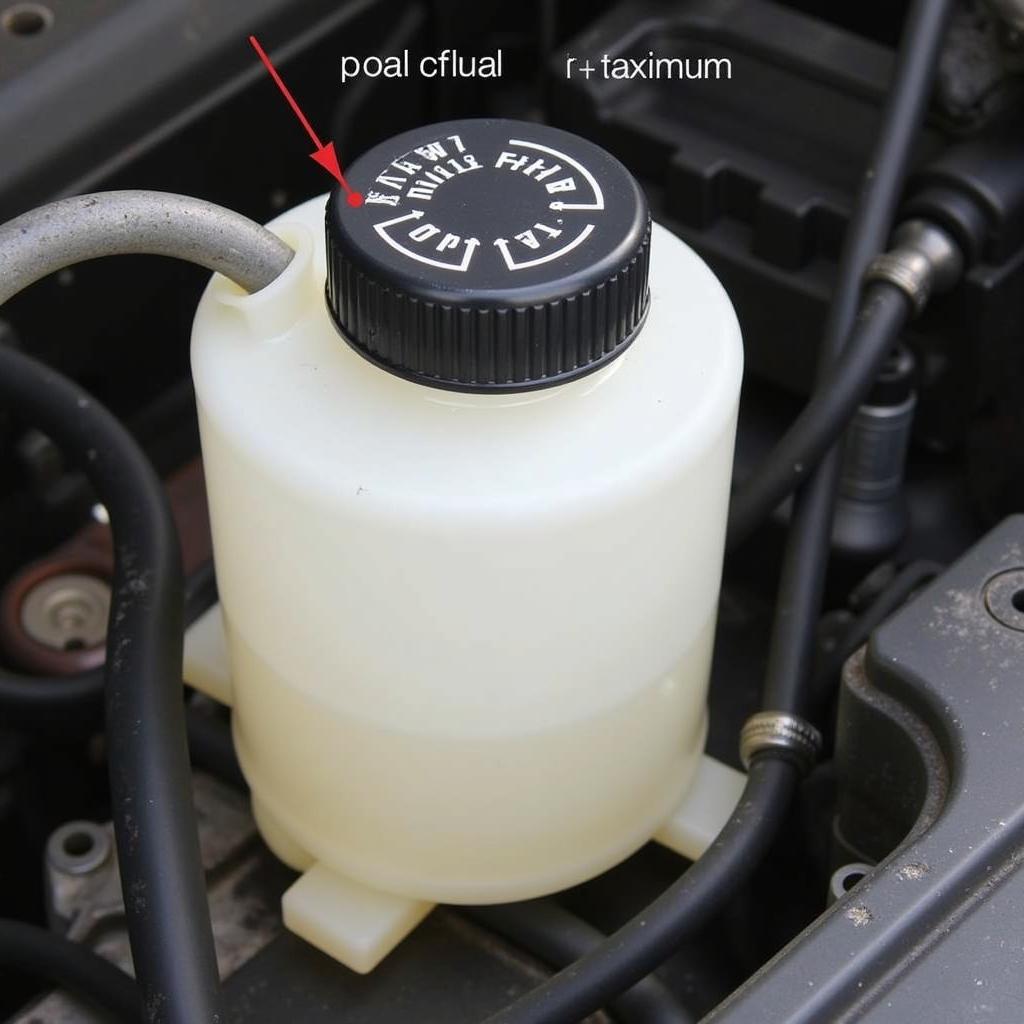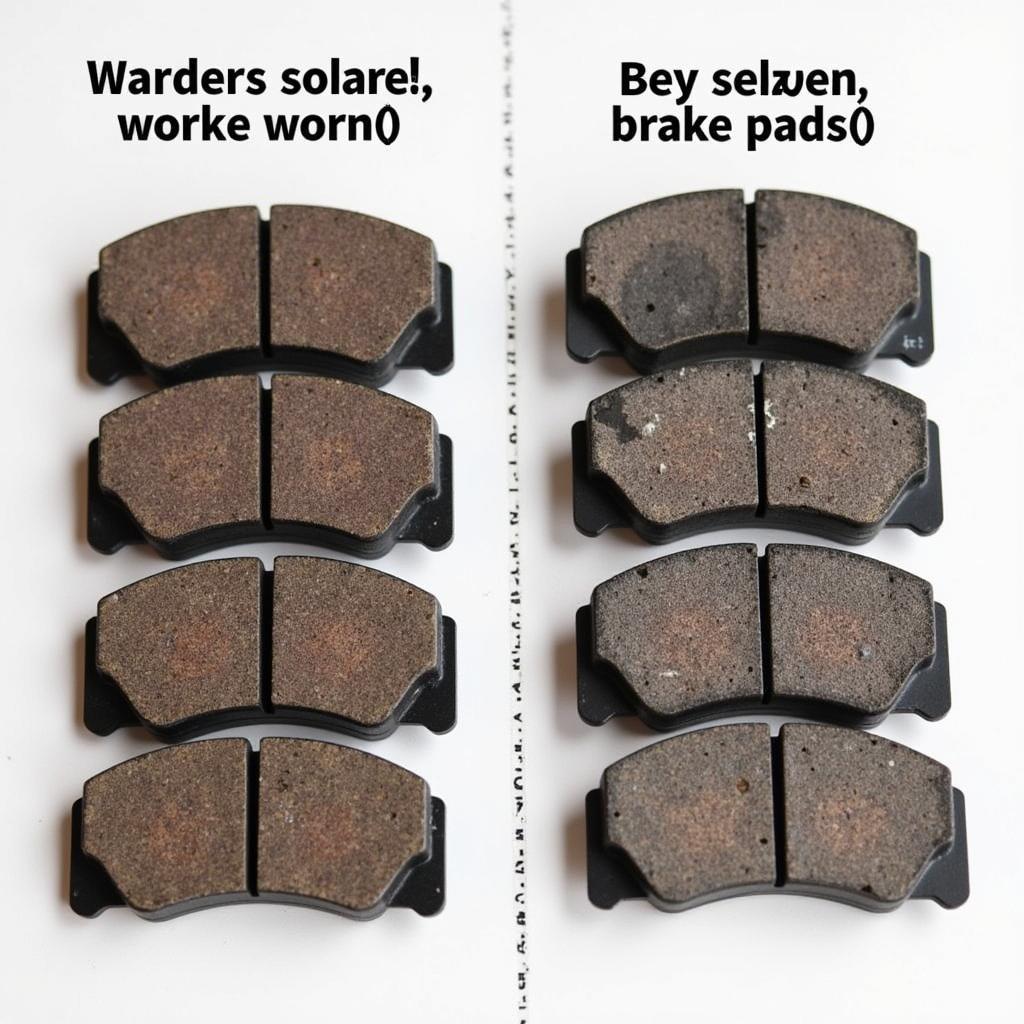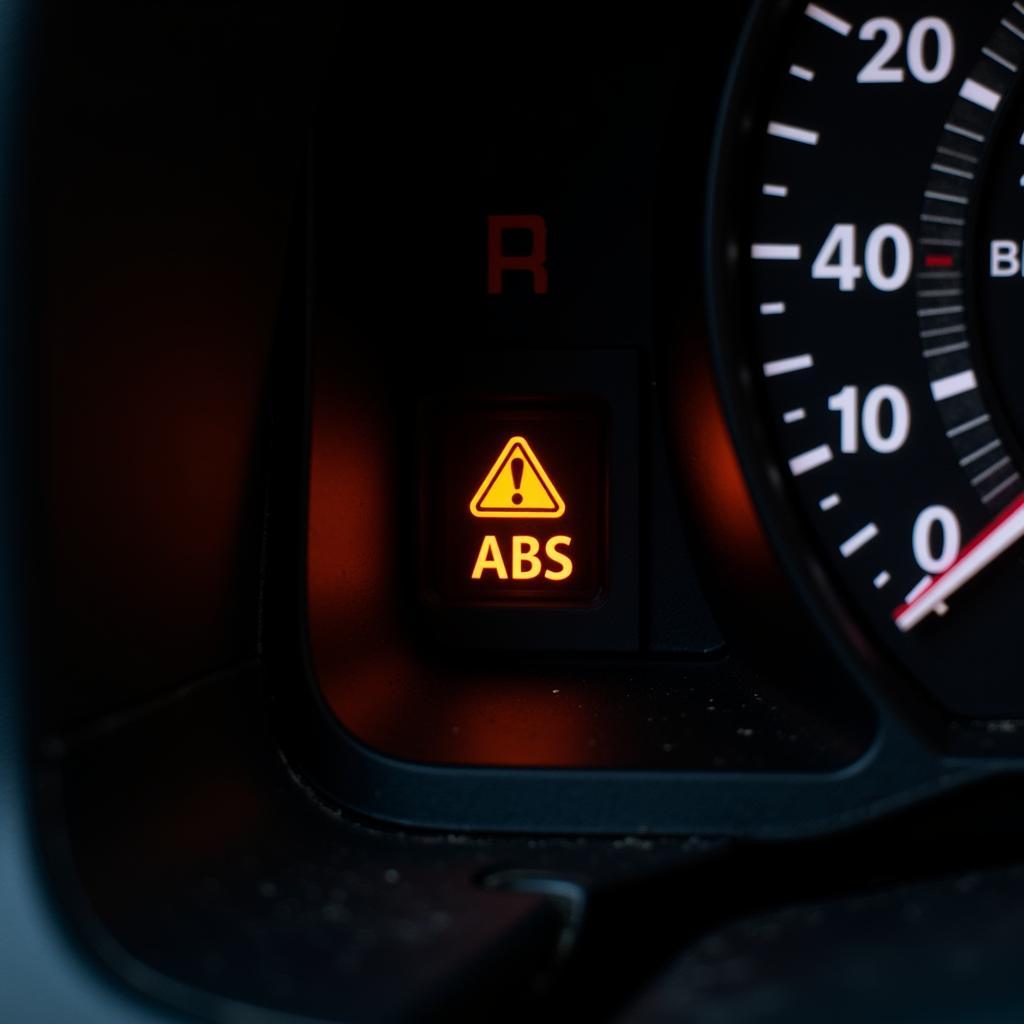The brake warning light on your dashboard is a crucial safety feature, and when it illuminates in your 2000 Toyota Camry, it’s essential not to ignore it. This light can signal a range of issues, from low brake fluid to more serious problems within your braking system. This comprehensive guide will delve into the common causes of a 2000 Toyota Camry brake warning light and provide you with effective troubleshooting steps.
Understanding Your Camry’s Brake System
Before we dive into the causes, let’s briefly review the key components of your Camry’s braking system:
- Brake Fluid: This hydraulic fluid transmits force from the brake pedal to the wheels, enabling your car to stop.
- Master Cylinder: This component pressurizes the brake fluid when you press the brake pedal.
- Brake Lines: These metal tubes carry the pressurized brake fluid to the wheels.
- Calipers and Wheel Cylinders: These components house the brake pads and shoes, respectively, which clamp down on the rotors or drums to slow or stop the wheels.
Common Causes of a 2000 Toyota Camry Brake Warning Light
The brake warning light can illuminate for several reasons, some more serious than others. Here’s a breakdown of the most common culprits:
1. Low Brake Fluid Level
This is the most frequent cause of an illuminated brake warning light. As brake pads wear down, the brake fluid level naturally drops in the reservoir. If the fluid level becomes too low, it can trigger the warning light.
Troubleshooting:
- Check the brake fluid level in the reservoir, located under the hood.
- If the level is low, add the appropriate DOT 3 or DOT 4 brake fluid as specified in your owner’s manual. Be cautious not to overfill.
 2000 Toyota Camry Low Brake Fluid Reservoir
2000 Toyota Camry Low Brake Fluid Reservoir
2. Worn Brake Pads
Brake pads are designed to wear down over time. When they become excessively thin, the brake warning light can activate.
Troubleshooting:
- Inspect your brake pads by looking through the spaces between the wheel spokes.
- If the pads appear thinner than 1/4 inch, it’s time for a replacement.
 Worn Brake Pads vs. New Brake Pads
Worn Brake Pads vs. New Brake Pads
3. Brake Fluid Leak
A leak anywhere in the brake system – from the master cylinder to the brake lines – can lead to a drop in brake fluid pressure and trigger the warning light.
Troubleshooting:
- Inspect the area around the master cylinder, brake lines, and near the wheels for signs of brake fluid leaks (a clear to yellowish fluid).
- If you suspect a leak, it’s crucial to have a qualified mechanic inspect and repair the issue promptly.
4. Faulty Brake Light Switch
The brake light switch is responsible for activating your brake lights when you press the brake pedal. A malfunctioning switch can also cause the brake warning light to come on, often accompanied by non-functioning brake lights.
Troubleshooting:
- Test your brake lights to ensure they are working correctly.
- If the brake lights are not working, the brake light switch may need to be replaced.
5. ABS (Anti-lock Braking System) Issue
Modern vehicles, including the 2000 Toyota Camry, are equipped with ABS. This system prevents wheels from locking up during hard braking. A problem with the ABS, such as a faulty sensor, can trigger the brake warning light.
Troubleshooting:
- If you suspect an ABS issue, it’s best to have your vehicle diagnosed by a qualified mechanic who can retrieve diagnostic codes and pinpoint the problem.
 2000 Toyota Camry ABS Warning Light
2000 Toyota Camry ABS Warning Light
When to Seek Professional Help
While some causes of a brake warning light can be addressed with basic DIY maintenance, it’s vital to remember that brakes are a critical safety system. If you’re unsure about any aspect of inspecting or repairing your brakes, or if you’ve identified a more complex issue like a brake fluid leak or a potential ABS problem, it’s essential to seek professional help.
Here are some signs that it’s time to consult a mechanic:
- You notice a soft or spongy brake pedal.
- Your car pulls to one side when braking.
- You hear grinding or squealing noises when applying the brakes.
- Your brake pedal vibrates when you brake.
Conclusion
Addressing a brake warning light promptly is crucial for maintaining the safety and reliability of your 2000 Toyota Camry. By understanding the common causes and following the troubleshooting steps outlined above, you can take the necessary measures to resolve the issue. However, always remember that brake systems are complex, and if you’re ever in doubt, consulting a qualified mechanic is always the safest course of action.
FAQs
1. Can I drive my 2000 Toyota Camry with the brake warning light on?
It’s not advisable to drive with the brake warning light on. Doing so could put you and others at risk. Have your car inspected and repaired as soon as possible.
2. How often should I check my brake fluid level?
It’s good practice to check your brake fluid level at least once a month and more frequently if you notice any changes in brake performance.
3. How long do brake pads last?
Brake pad lifespan varies depending on driving habits and conditions. On average, they last between 30,000 to 70,000 miles. However, it’s best to consult your owner’s manual for specific recommendations for your 2000 Camry.
4. How much does it cost to fix a brake light switch?
The cost to replace a brake light switch varies depending on labor rates and the specific switch required for your 2000 Toyota Camry. You can expect to pay between $50 to $150 for this repair.
5. How can I prevent future brake problems?
Regular brake inspections, timely brake pad replacements, and addressing any brake fluid leaks promptly can significantly reduce the risk of future brake problems in your 2000 Toyota Camry.


